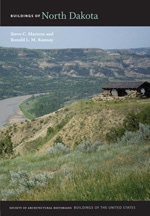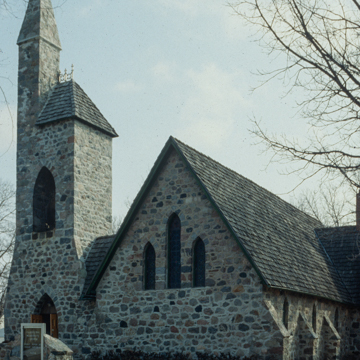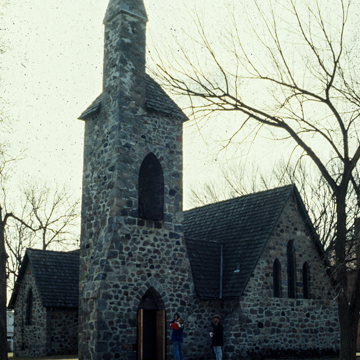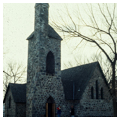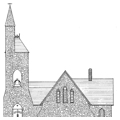You are here
Casselton Heritage Center (St. Stephen’s Episcopal Church)
St. Stephen’s was planned and built with financial assistance from East Coast contributors even before a congregation was established in Casselton. Under the direction of Bishop William D. Walker, the Episcopal Church constructed a remarkable series of fieldstone church buildings in North Dakota towns, many of them designed by Hancock in a style influenced by his boyhood experience with Anglican high church architecture in England. The churches include Calvary (1885) in Mayville, Holy Trinity (1886) in Lisbon, Calvary (1887) in Buffalo, and Advent (1887) in Devils Lake. Despite similarities in materials and form, each church maintains a unique identity. The overall massing and composition of these churches, their stone bearing walls with buttresses, and colored-glass leaded windows were directly inspired by Christ Church in Medway, Massachusetts, which was familiar to Hancock’s collaborator, Bishop William D. Walker.
Typical of Episcopal churches, St. Stephen’s is Gothic Revival with a nave plan and small transepts, a steeply pitched gable roof, pointed-arch openings, and an honest expression of materials. The church is built of local split-granite fieldstone, roughly dressed, with delicate ironwork highlighting the prominent square bell tower and its tall corner turreted spire. Unfortunately, dwindling congregations forced many of the frontier Episcopal churches to close or be sold to other denominations. St. Stephen’s served from 1950 to 2004 as the Casselton Mennonite Church, and is currently the home of the local historical society.
Writing Credits
If SAH Archipedia has been useful to you, please consider supporting it.
SAH Archipedia tells the story of the United States through its buildings, landscapes, and cities. This freely available resource empowers the public with authoritative knowledge that deepens their understanding and appreciation of the built environment. But the Society of Architectural Historians, which created SAH Archipedia with University of Virginia Press, needs your support to maintain the high-caliber research, writing, photography, cartography, editing, design, and programming that make SAH Archipedia a trusted online resource available to all who value the history of place, heritage tourism, and learning.














